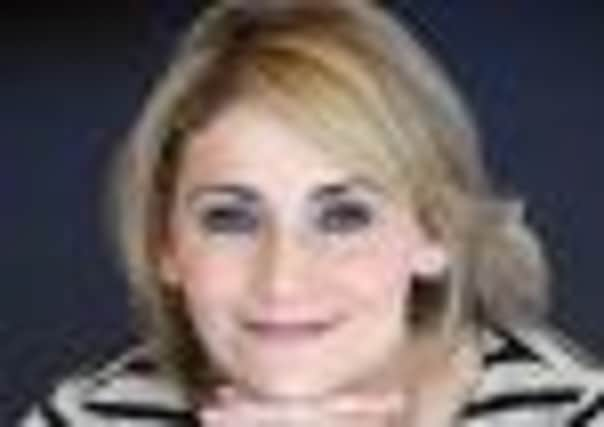Juliet Dunlop: Place in the Sun, first breasts, now arrests


Not in connection with the possible ditching of bare breasted women I hasten to add, but the far more serious charge of alleged phone hacking. Still, it’s a headline that writes itself: “First breasts, now arrests!”
It may even appeal to Sun readers, who according to a poll, published in the wake of Mr Murdoch’s epiphany, appear to view any attempt to axe Page 3 models as downright criminal. But that’s what he’s suggesting, or at least hinting at.
Advertisement
Hide AdAdvertisement
Hide AdA woman who sent the News Corp boss a tweet saying: “#nomorepage3 Seriously, we are all so over Page 3 – it is so last century!” received the following response: “You may be right, don’t know but considering. Perhaps halfway house with glamorous fashionistas.”
Now this is not the first time the 81 year-old media mogul has toyed with making changes to Page 3. Back in 1994 he said its days might be numbered, but then a few years later backtracked, telling shareholders that a short-lived experiment with bikinis on Page 3 would stop immediately if it affected circulation.
However, these latest comments, although not entirely serious, do mark an astonishing turnaround, given the recent thoughts of the Sun editor on the matter.
Appearing before the Leveson inquiry into press standards last year, Dominic Mohan suggested that Page 3 was an innocent staple of British life that celebrated natural beauty.
He described the paper’s topless models as “good role models” who were “very healthy.” In other words, the women aren’t anorexic and the breasts are real – what’s all the fuss about?
He then went on to argue that they were “ambassadors” for the newspaper, pointing out that they had even travelled to Afghanistan in a selfless bid to raise the morale of our boys. Perhaps we have overlooked their heroics. Perhaps they should be given a campaign medal; a reward for doing their level breast, as the Sun might put it.
And millions of readers can’t be wrong. Can they? Few would disagree with the fact that Page 3 “stunnas” have been central to the success of the Sun.
When they were introduced in 1970, the title was already under attack for being obsessed with sex, but decided to go topless anyway. Rupert Murdoch was said to be unhappy with the disrobing, but soon learned to live with the new, sexed-up Page 3 after sales soared.
Advertisement
Hide AdAdvertisement
Hide AdTopless models were a gamble which paid off and they’ve been a fixture ever since. Covering up now would simply hand thousands of readers to Richard Desmond’s Daily Star, and with circulation at the Sun in decline, it can hardly afford to risk alienating its core readership.
And people, on the whole, don’t like change. According to a YouGov survey commissioned by the tabloid and published this week, 61 per cent of Sun readers believe it should continue showing Page 3 girls.
A lot of readers obviously like things just the way they are – quite a lot more than the 64,500 people who have signed the “No More Page 3” petition, set up last year to “take the bare boobs out of the Sun”.
Campaigners, understandably, have been bolstered by the Murdoch tweet, describing it as “a good step forward” but perhaps they shouldn’t feel too triumphant, not yet anyway.
The Sun has made a lot of money over the last 42 years thanks to those breasts, and it is unlikely to remove them, unless it would make more money by removing them.
And anyway, getting rid of Page 3 in the Sun and replacing it with something equally awful and dated and insulting won’t improve the way women are depicted in the media.
Slipping on a see-through Versace number and turning it into a “halfway house” with “glamorous fashionistas” still amounts to reducing women to sex objects in a national newspaper.
At least Page 3 in its current form doesn’t pretend to be anything other than what it is. Sex sells.
We may as well be honest about it.